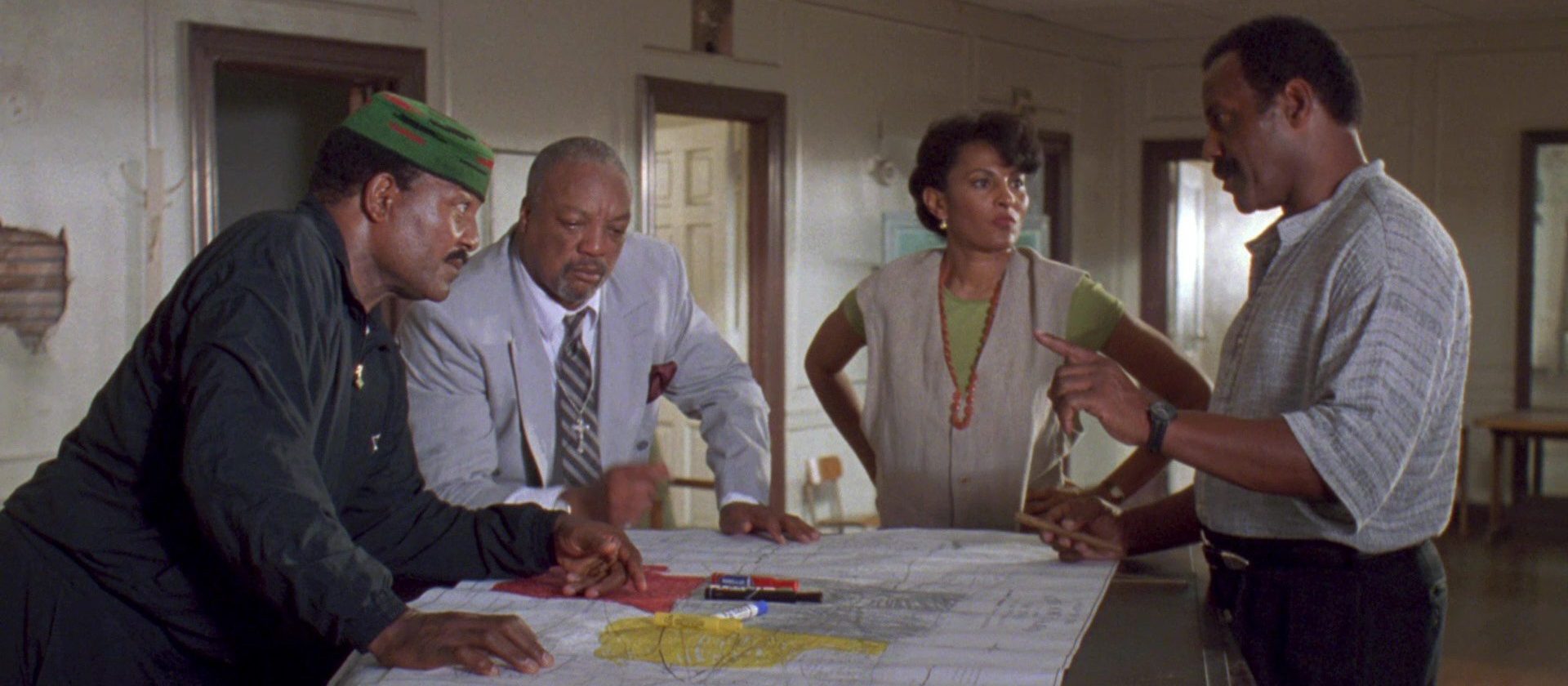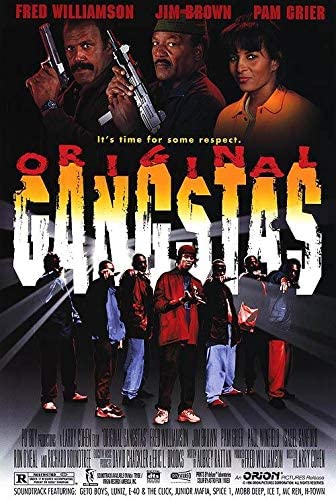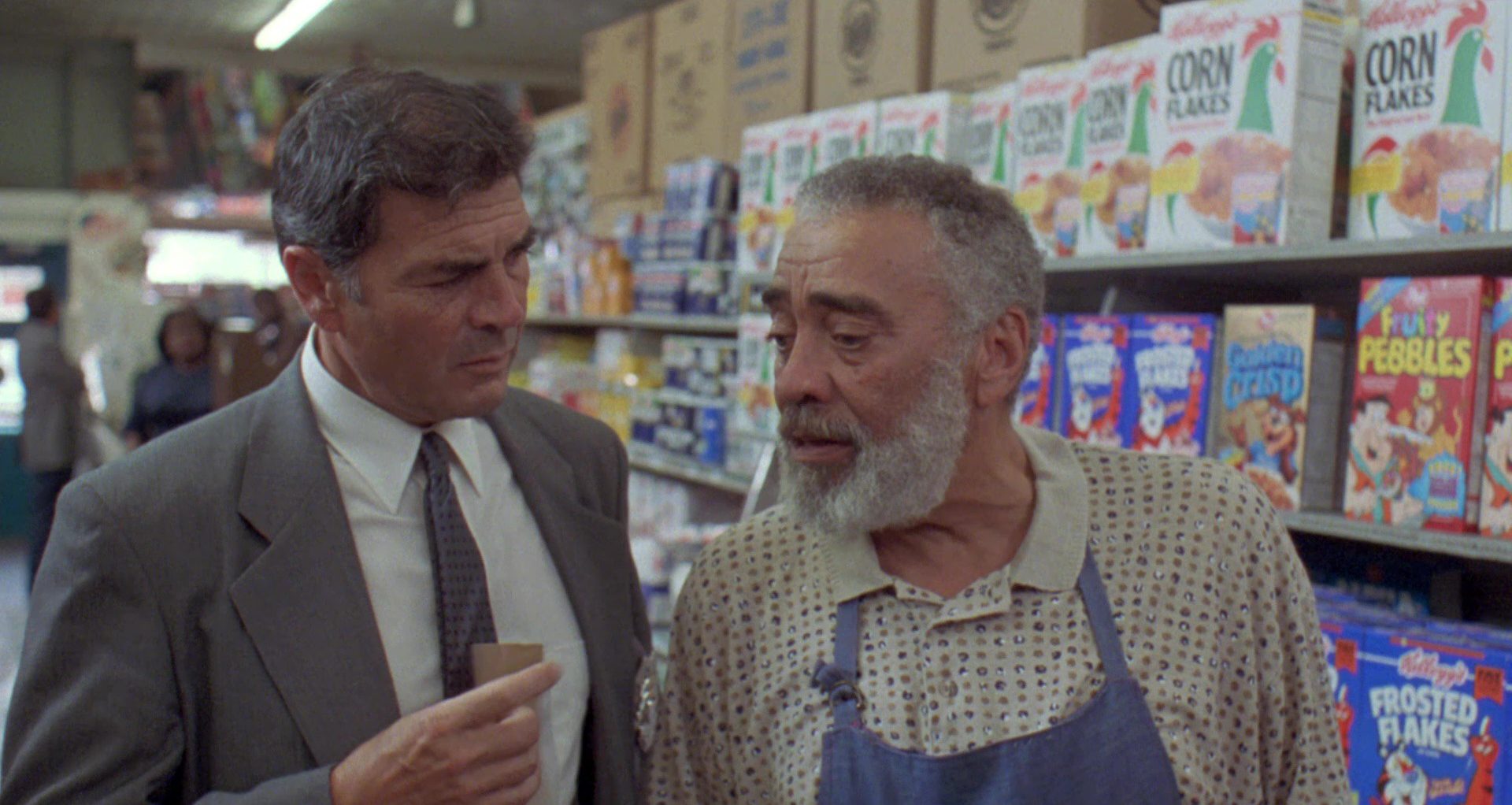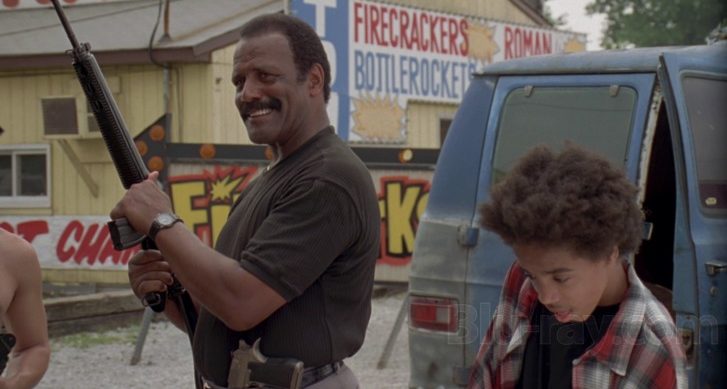

“That’s what America’s missing today—balls.”
Although Larry Cohen is known for his forays into horror and sci-fi, he was intimately familiar with the blaxploitation genre and its stars. Having begun his career directing films like Bone and Black Caesar before moving onto the B-movies he’s remembered for, teaming up with the legends of blaxploitation for his final directorial effort makes sense. Fred Williamson—who starred in Black Caesar—is the lead man of Original Gangstas, which also features Jim Brown, Pam Grier, Paul Winfield, Isabel Sanford, Richard Roundtree, and Ron O’Neal. The resulting concoction is a mixed bag—some light attempts at social commentary regarding the rise of gang violence among the youth, some throwback butt-kicking that toes the line of cheesy, and a whole lot of nostalgic charm from the stellar cast. It never dips into a parody of the genre it is celebrating, but neither does it come close to matching the best of that era. It’s sort of like a forerunner ofThe Expendables but not as pompous and Hollywood-ized.
The film is set in Gary, Indiana (Williamson’s actual hometown), in the aftermath of a gang-related homicide. After the UCLA-bound Kenny (Timothy Lewis) hustles a thug in a game of one-on-one, he’s gunned down in a phone booth outside of a convenience store by Kayo (Dru Down). The owners of the store, Marvin (Oscar Brown Jr.) and Gracie Bookman (Isabel Sanford), well-liked members of the community who the Rebels treat with respect, decide to disclose the license plate number of the car used in the drive-by shooting. In retaliation to his “betrayal,” Marvin receives a beating and a few pistol rounds to the torso from the Rebels.
John Bookman (Fred Williamson) leaves his post as a football coach in L.A. to come home and tend to his severely wounded father. As an ex-Rebel himself, when John learns the details of the events, he decides the younger gang members need some roughing up. He runs into another ex-Rebel, Jake (Jim Brown), who is back in town to bury Kenny, his illegitimate son; and perhaps to reconcile with the boy’s mother, Laurie (Pam Grier). There are talks of peace negotiations utilizing the town’s minister (Paul Winfield) as a mediator, but these discussions break down and soon molotov cocktails are being tossed into neighborhood windows. Inevitably, the only viable solution is for the original members of the Rebels—John, Jake, Laurie, Slick (Richard Roundtree), and Bubba (Ron O’Neal)—to take matters into their own hands and enact justice upon the gang.

I think Cohen (or maybe Williamson, who was an uncredited co-director) did well in constructing Original Gangstas to give Gary, Indiana a palpable sense of place. It’s a city that’s dying. The few promising young people it’s produced have moved on, been gunned down, or become corrupted by the prevailing culture of poverty and crime. Businesses have closed, industries have left, those with means have moved out, and those who remain are under the thumb of the gangs. The opening narration describes how the city fell into such a state. It’s set to aerial footage and shots of rundown, boarded up storefronts, abandoned factories, and a derelict train station—painting a vivid picture of the urban wasteland. The bit actors also add a depth by conveying a timid demeanor—a mixture of shame, anger, and fear that’s born of feeling tied down to a place that no longer feels like home; characterized by a pervasive and ugly culture that will inevitably taint any children brought up in it. The script does a good job of separating the Rebel activities of Bookman’s youth—when he and the boys would take part in harmless shenanigans—and the criminal acts of the present. This is often achieved subtly by using soul music in the background of the older generation’s scenes, and hip-hop for the young fellas. It’s even put in the foreground by featuring a performance from the Chi-Lites (who, by the way, formed in the 1950s and still perform today) which contrasts with the presence of real-life gangsta rappers Scarface and Bushwick Bill in small roles.

Where the film doesn’t measure up is in actually putting a satisfying story on the screen. With so many prominent names in the cast, many of them are essentially reduced to cameo status. Williamson is the true star of the film, and all his pals merely play second or third fiddle. So we have him charismatically doing his butt-whooping thing as the social commentary fades into the background and vengeance is meted out. It’s not bad by any means, and the guys seem to be having fun doing it, but there’s just not much there. It ends up feeling very similar though not as spirited as the 1970s films that it was hailing, which I guess was the intent. I’m only disappointed because it started with a promise of something more substantial, only to neglect its salient message and fail to reach the stylistic heights of the best of its genre.
A few too many meaningless subplots pull us away from anything resembling a central message, and the revolving door of former blaxploitation stars begins to feel like a game of spot-the-actor which deflates any chance at a real sense of ‘getting the team back together’ or ‘one last hurrah.’ With a bit more whittling at the script and the addition of some more meaty parts for the likes of Brown, Grier, O’Neal, etc. this could have been really good. Instead, it’s more of a nostalgia piece that’s fun but not really impactful. If you like the classics that these guys and gals are in—Foxy Brown, Super Fly, Shaft, Coffy, Three the Hard Way—you’ll probably like it, but if you’ve never seen those films, you’d be better off watching them instead.